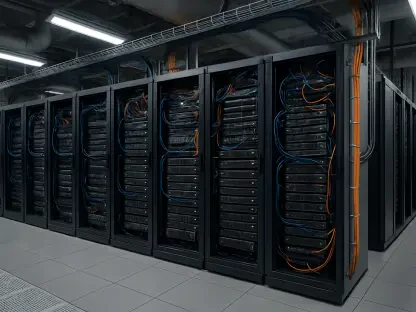In an era where the internet underpins nearly every aspect of daily life—from remote work to streaming entertainment—the question of who should shoulder the cost of maintaining and expanding this vital infrastructure has become a pressing global concern, sparking intense discussions worldwide. The so-called ‘fair share’ debate has ignited fierce arguments among telecommunications operators, who build the physical networks, and large technology companies or over-the-top (OTT) service providers like Google, Netflix, and Meta, whose services drive massive amounts of internet traffic. As data consumption continues to skyrocket, the financial strain on telecoms has intensified, raising fundamental questions about fairness, sustainability, and the future of digital access. This debate is not merely about dollars and cents; it touches on critical issues like net neutrality, innovation, and consumer rights, making it a pivotal challenge for policymakers, industry leaders, and societies worldwide.
The core of this controversy revolves around whether the current funding model, where telecoms and end users primarily bear the costs, remains viable in a rapidly evolving digital landscape. Telecom operators argue they are unfairly burdened with the expenses of infrastructure that disproportionately benefits tech giants, while OTT providers counter that their content and services fuel demand for better networks, ultimately benefiting all stakeholders. Beyond economics, the potential impact on net neutrality—the principle that all internet traffic should be treated equally—looms large, with fears that new funding models could create a tiered internet favoring those who pay more. As governments and regulators grapple with these competing interests, the lack of a unified global approach underscores the complexity of ensuring an equitable and innovative digital ecosystem.
Global Perspectives on Funding Models
Europe and South KoreLeading Regulatory Efforts
In Europe and South Korea, the push for regulatory intervention in the fair share debate has gained significant traction, positioning these regions as frontrunners in addressing internet infrastructure funding. The European Union is actively exploring frameworks like the proposed Digital Networks Act, which could mandate contributions from large tech firms to offset network costs. This move reflects a broader consensus among many European policymakers that the current imbalance, where telecoms shoulder most expenses, is unsustainable given the exponential growth in data traffic. However, concerns persist about the potential erosion of net neutrality, as some fear that mandated payments could incentivize prioritized access for wealthier content providers, thus disadvantaging smaller competitors and altering the open nature of the internet.
South Korea, meanwhile, has already taken decisive steps by implementing innovative regulatory models, such as the so-called ‘Netflix law,’ which requires major content providers to invest in network quality. Since adopting a regulated peering model nearly a decade ago, the country has set a precedent for ensuring that OTT providers contribute to infrastructure costs, particularly as streaming services account for a substantial share of internet traffic. While this approach has been praised for alleviating financial pressure on telecoms, it has also sparked debate about whether such policies might deter innovation or create barriers for new entrants in the digital market. The contrasting reactions to South Korea’s policies highlight the delicate balance regulators must strike between fairness and fostering a competitive online environment.
United States and AustraliCautious and Contrasting Approaches
In the United States, the fair share debate remains deeply polarized, with political and economic considerations shaping a cautious approach to regulatory change. Some regulators, including voices within the Federal Communications Commission, have advocated for contributions from Big Tech to support infrastructure, arguing that the current system unfairly burdens telecoms and, by extension, consumers. However, opposition from certain political factions frames such policies as potential trade barriers, particularly in the context of international negotiations with regions like the EU. This resistance underscores a broader hesitation to impose new financial obligations on tech giants, reflecting concerns about stifling economic growth or disrupting the competitive dynamics of the digital marketplace.
Australia presents a contrasting perspective, where significant public investment in broadband infrastructure through entities like NBN Co. has diminished the urgency for private sector contributions. This government-backed model has largely insulated telecom operators from the financial pressures seen elsewhere, allowing the fair share debate to take a backseat in national policy discussions. Nevertheless, as data demands continue to grow, there is a lingering question of whether this reliance on public funding can sustainably meet future needs without involving contributions from major traffic generators. The Australian experience illustrates how unique national contexts shape responses to global digital challenges, highlighting the diversity of approaches even among developed economies.
Core Issues and Stakeholder Tensions
Telecoms vs. OTT Providers: A Financial Tug-of-War
The heart of the fair share debate lies in the stark financial disparity between telecommunications operators and OTT service providers, creating a persistent tug-of-war over infrastructure funding. Telecoms contend that they bear the brunt of building and maintaining the physical networks that enable the internet, while large tech companies reap significant profits from the traffic they generate without contributing to these costs. This imbalance, they argue, hampers their ability to invest in necessary upgrades to meet ever-increasing data demands, potentially compromising network reliability and quality. The frustration among telecoms is palpable, as they see themselves as the unsung enablers of a digital economy that disproportionately benefits others.
On the flip side, OTT providers like streaming platforms and social media giants maintain that their services are a driving force behind internet adoption and usage, indirectly spurring telecoms to enhance their networks through heightened demand. They argue that imposing additional fees would not only disrupt the current business model but also risk passing costs onto consumers, either through higher subscription prices or reduced access to content. Moreover, many tech firms highlight their investments in content delivery networks and other technologies that alleviate strain on telecom infrastructure, suggesting their contributions are already significant, albeit indirect. This clash of perspectives reveals a deep divide over what constitutes fairness in the digital ecosystem.
Net Neutrality and Consumer Impact: Risks of a Tiered Internet
A critical concern in the fair share debate is the potential threat to net neutrality, a foundational principle ensuring that all internet traffic is treated equally without discrimination. If large content providers are required to pay for network access, there is a risk that telecoms might prioritize traffic from those who can afford higher fees, effectively creating a tiered internet. Such a system could marginalize smaller players—startups or independent creators—who lack the financial resources to compete, thereby reducing the diversity of content available online. The implications for innovation and competition are profound, as a less open internet might stifle the very dynamism that has defined the digital age.
Equally important is the potential impact on consumers, who rely on the internet for essential aspects of modern life, including education, work, and social connection. Should funding models shift in ways that increase costs for OTT providers, these expenses could trickle down to end users through higher service fees or limited access to certain platforms. Additionally, a tiered internet might result in slower speeds or restricted content for those unable to pay premium rates, exacerbating digital inequality. Protecting consumer interests remains a shared priority across stakeholders, yet the path to achieving this goal amid competing financial interests remains fraught with challenges and uncertainties.
Broader Implications and Future Challenges
Innovation and Economic Sustainability: Striking a Balance
The fair share debate extends beyond immediate financial concerns to encompass broader implications for innovation and economic sustainability in the digital realm. Telecom operators argue that without relief from the current cost burden, their capacity to invest in cutting-edge technologies like 5G and beyond will be severely limited. Such advancements are crucial not only for meeting growing data demands but also for enabling transformative applications in areas like smart cities, autonomous vehicles, and telemedicine. The argument posits that a more equitable funding model could unlock resources necessary for maintaining a competitive edge in global technology markets, ensuring long-term benefits for entire economies.
Conversely, OTT providers caution that imposing additional financial obligations could hinder their ability to develop new services and platforms, which are often the catalysts for digital progress. The fear is that extra costs might deter investment in experimental technologies or content creation, ultimately slowing the pace of innovation that benefits users worldwide. Striking a balance between these competing needs is essential, as both telecoms and tech companies play integral roles in advancing the digital landscape. Policymakers face the daunting task of crafting solutions that support infrastructure development without curbing the creative and entrepreneurial spirit of the tech sector.
Crafting Collaborative, Data-Driven Solutions
Amid the complexities of the fair share debate, there is a growing recognition that collaborative, data-driven solutions are vital to addressing the diverse needs of stakeholders. Experts advocate for policies grounded in comprehensive analysis of traffic patterns, infrastructure costs, and economic impacts, rather than reactive or adversarial measures that might favor one side over another. Such an approach requires transparent dialogue among telecoms, OTT providers, governments, and consumer advocates to ensure that any funding model prioritizes the stability and growth of the digital ecosystem. The emphasis on evidence over rhetoric offers a pathway to mitigate risks like reduced competition or threats to net neutrality.
Furthermore, the global nature of the internet necessitates international cooperation to harmonize policies where possible, even as regional differences in economic conditions and priorities are acknowledged. The diversity of approaches—from assertive regulations in some areas to cautious restraint in others—suggests that flexibility will be key in any framework. As the digital age continues to evolve, the fair share issue stands as a test of how societies can balance economic fairness with technological advancement. Moving forward, the focus must remain on actionable steps that safeguard an inclusive and innovative online environment for future generations.









